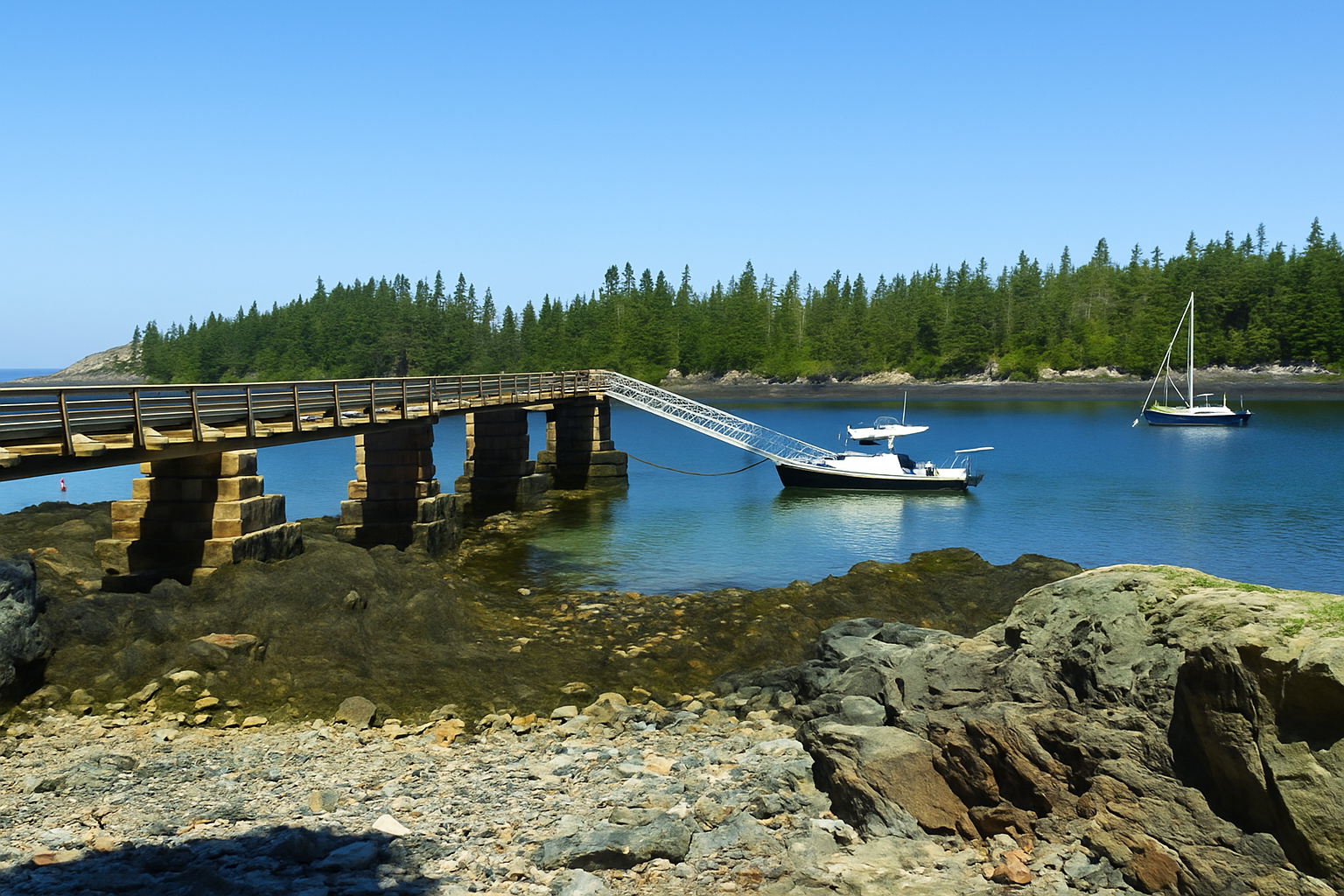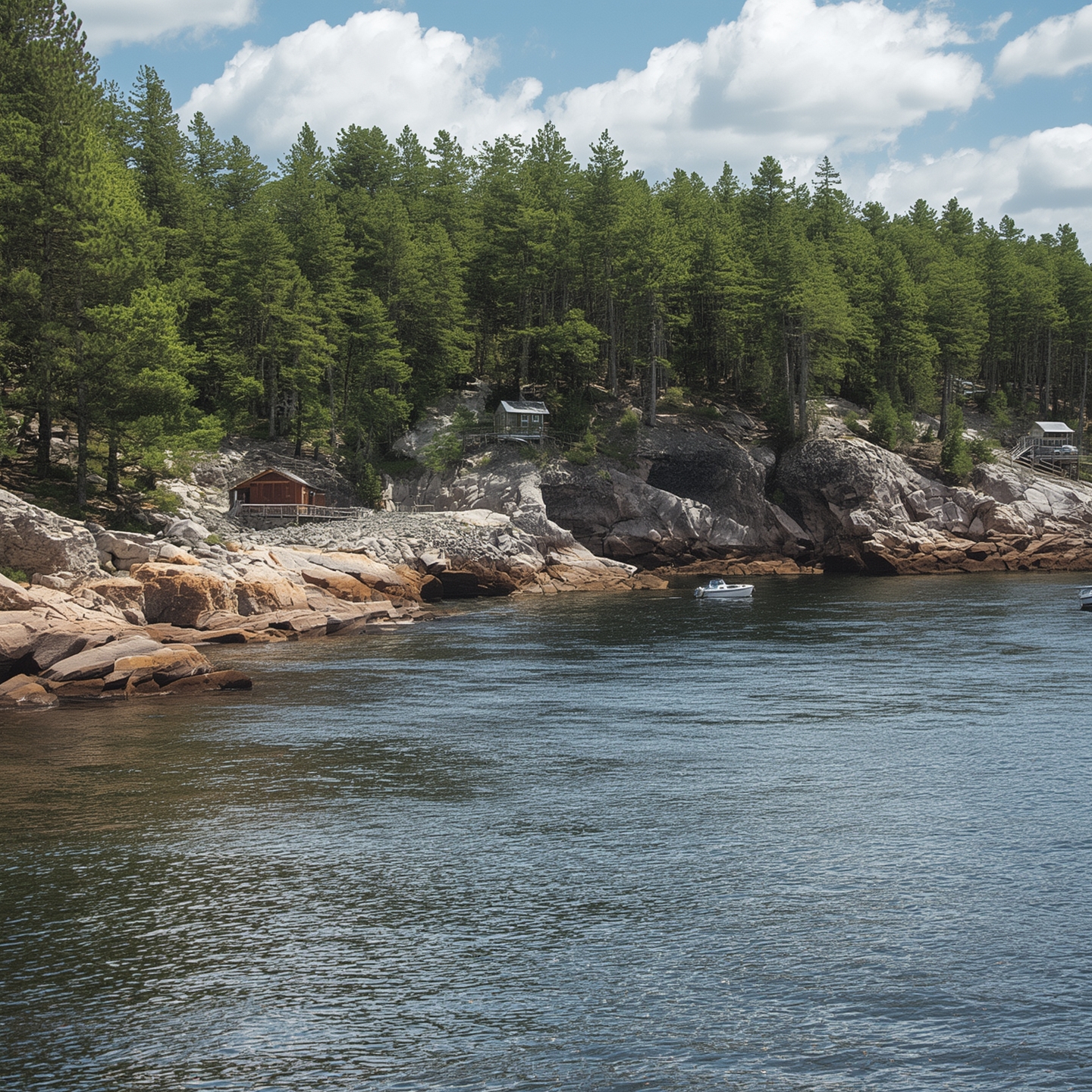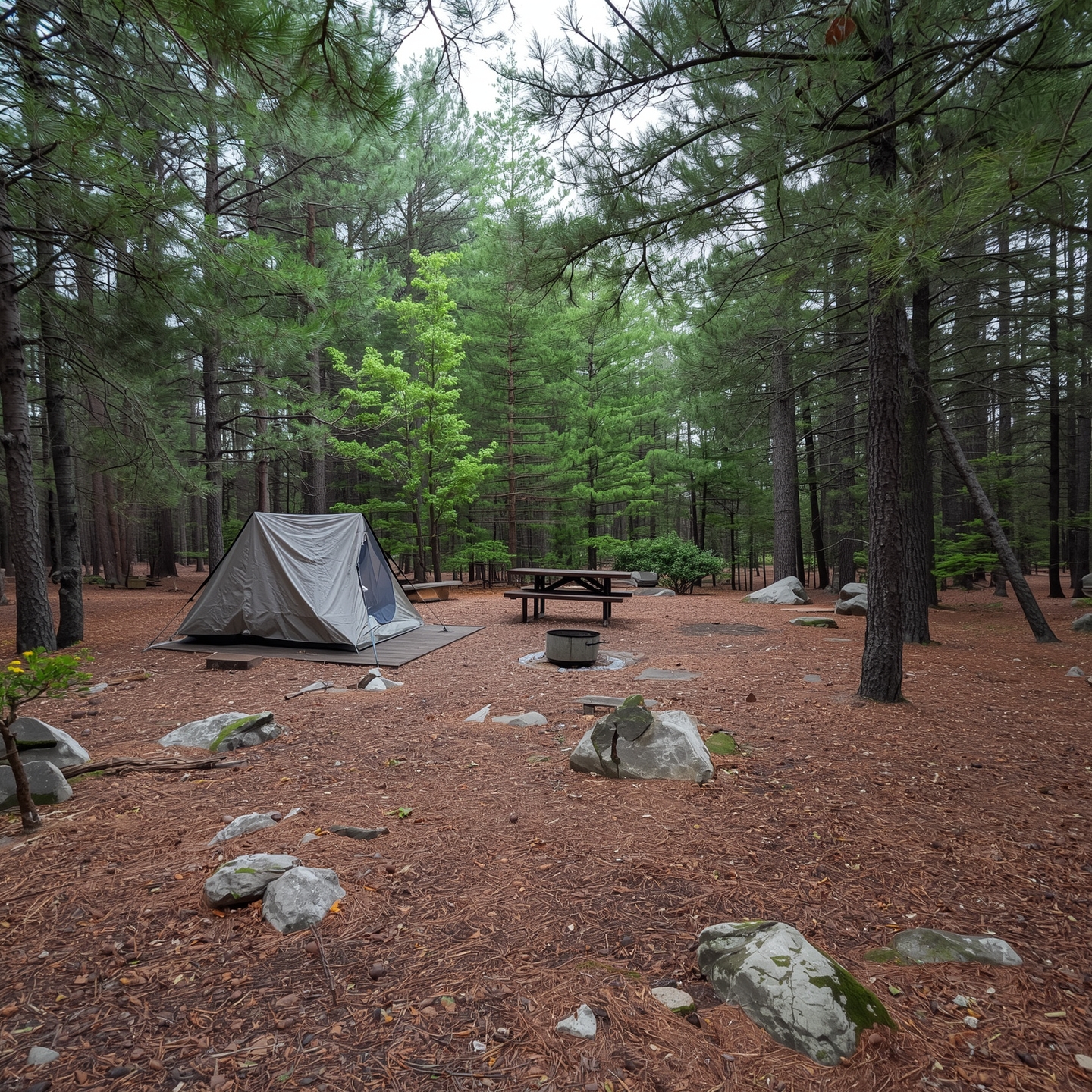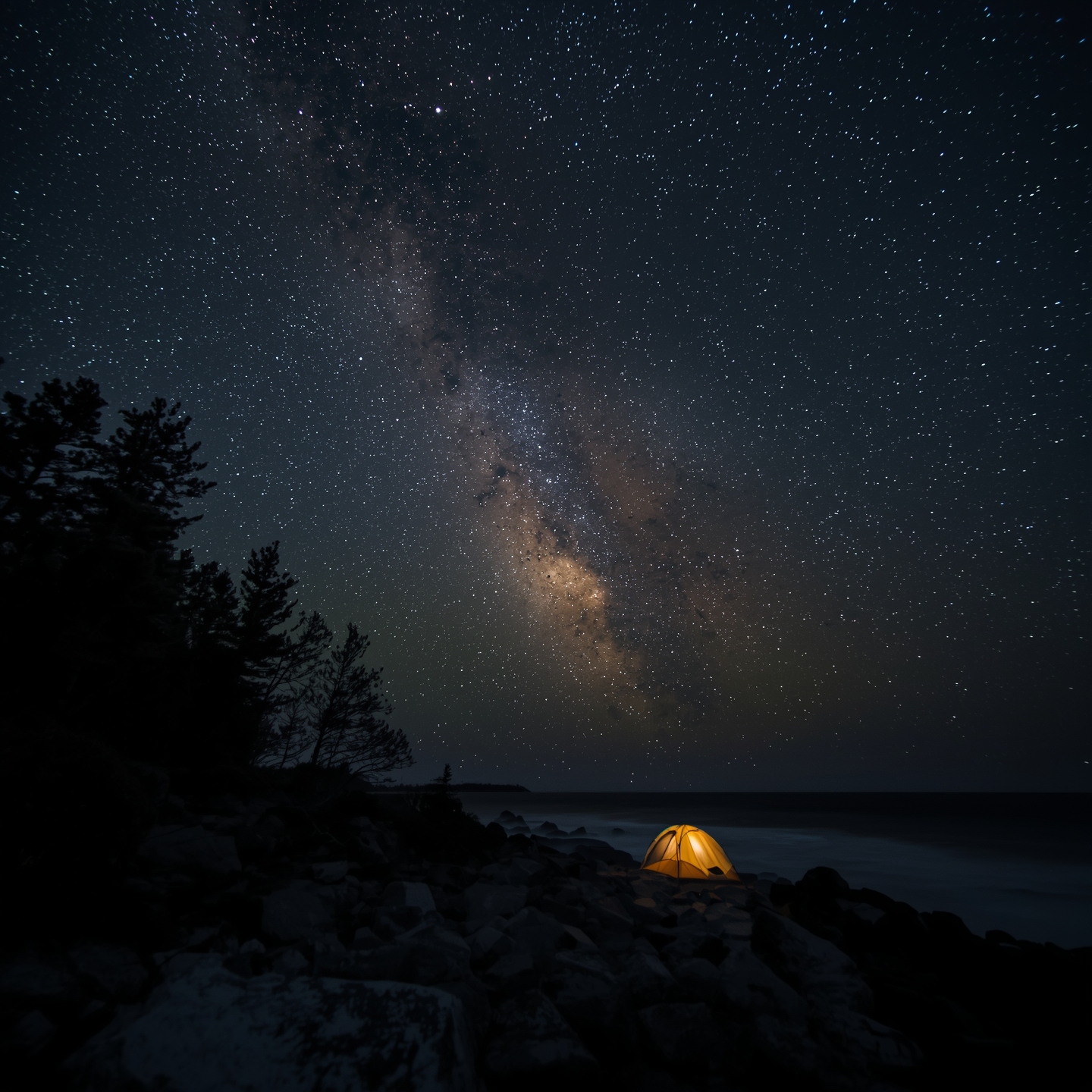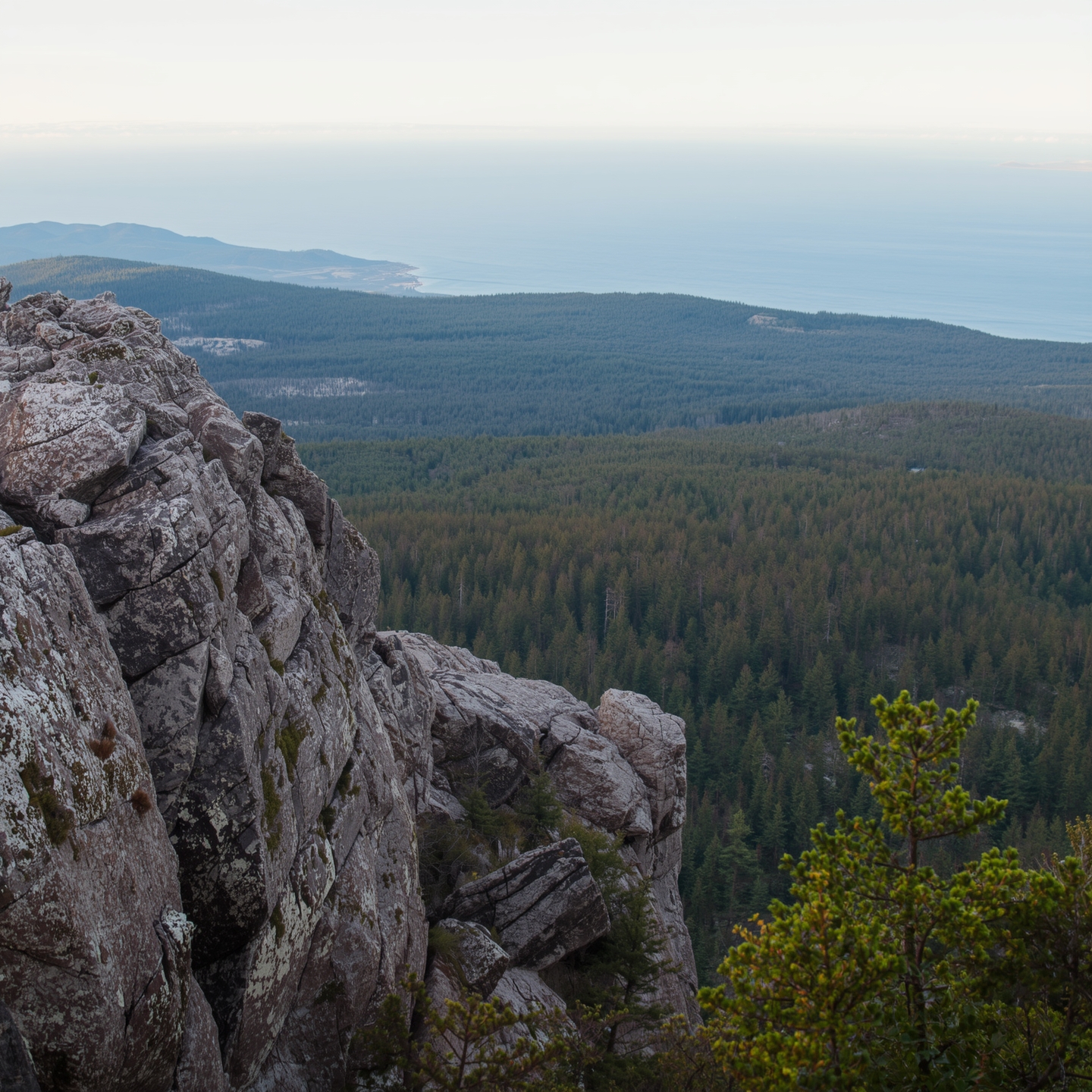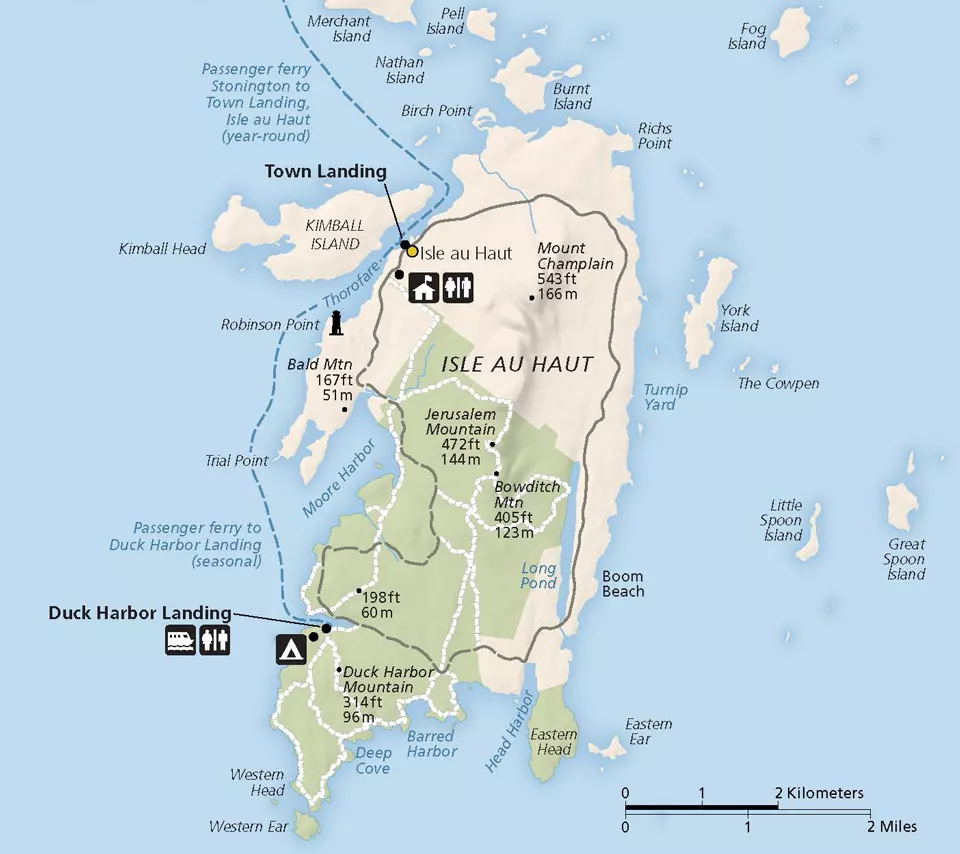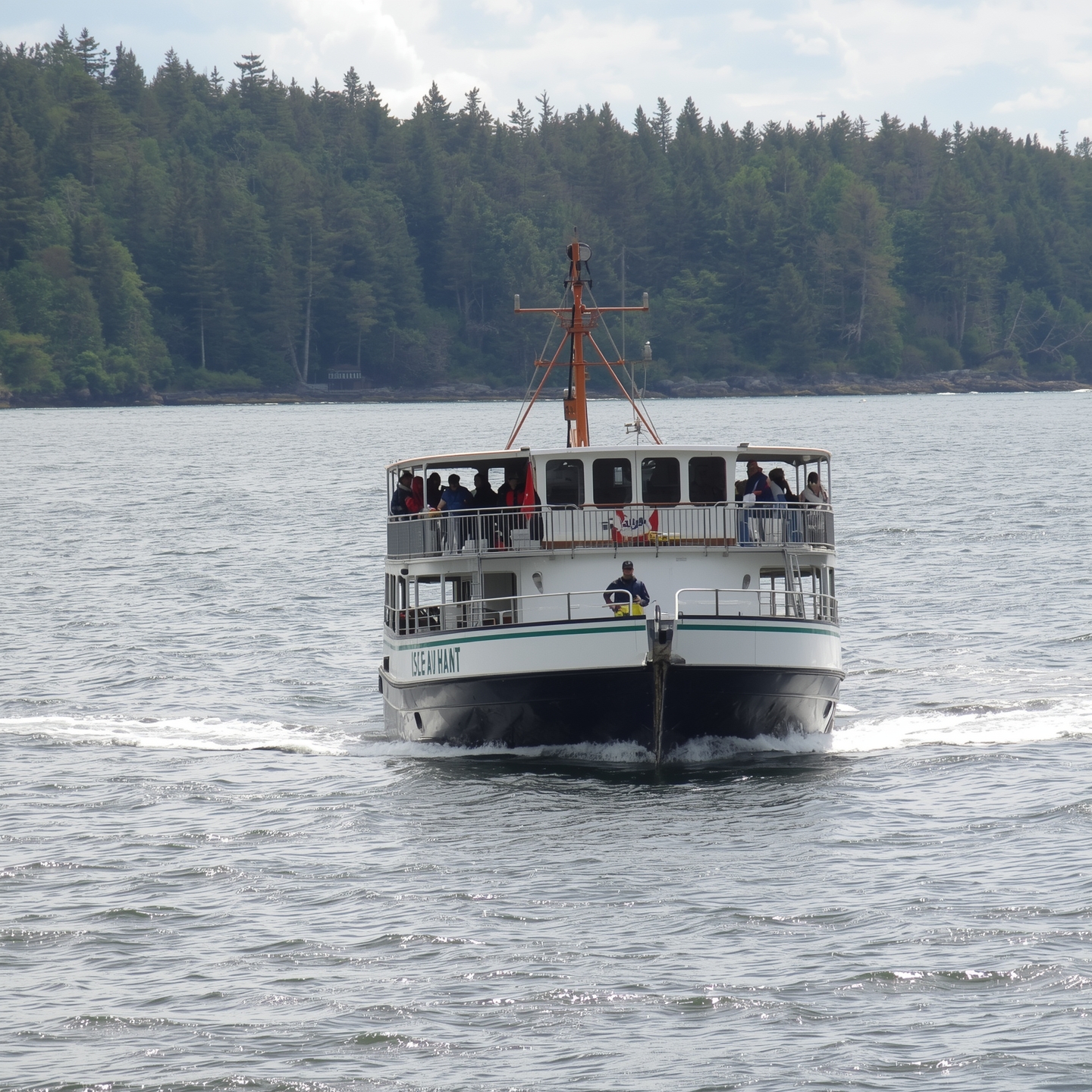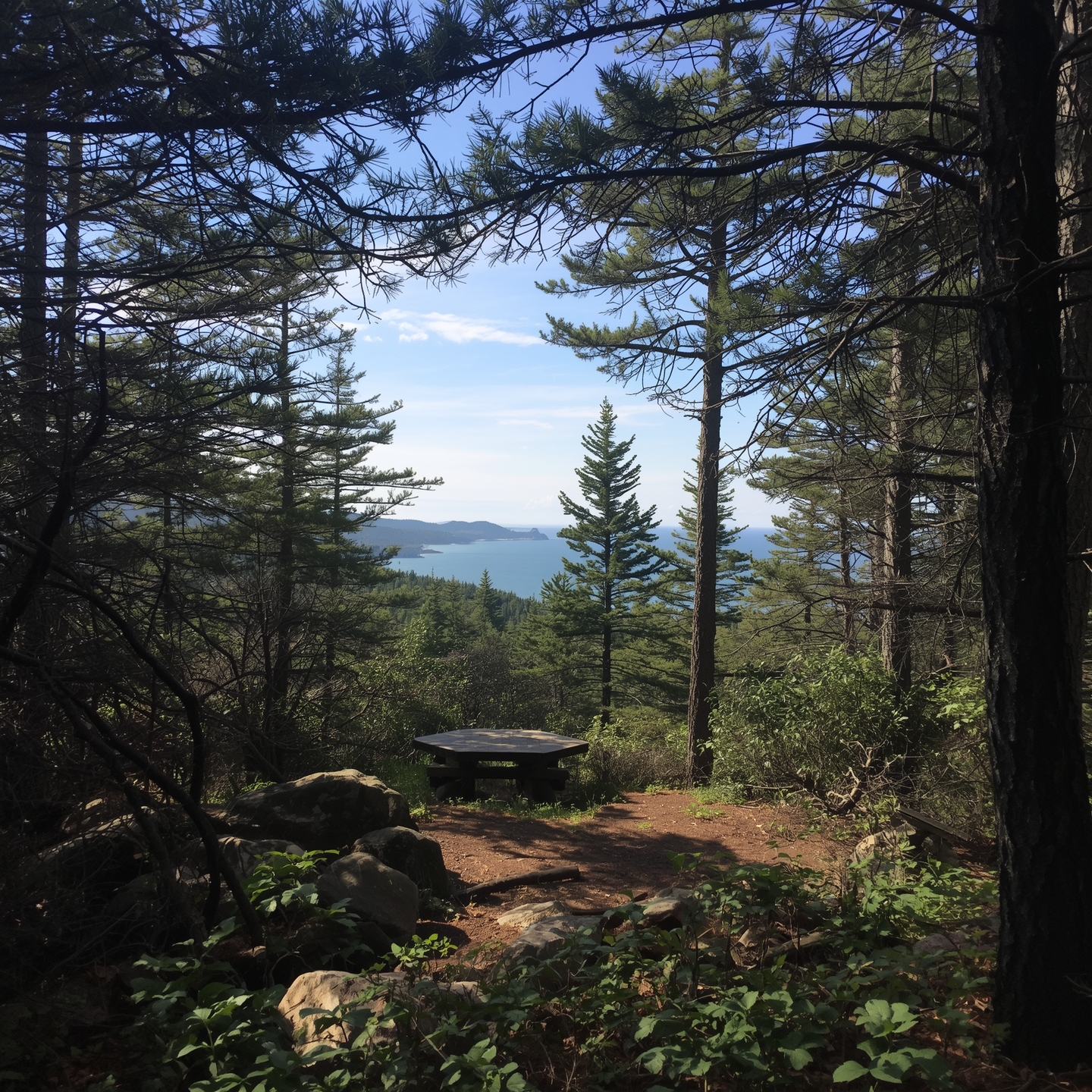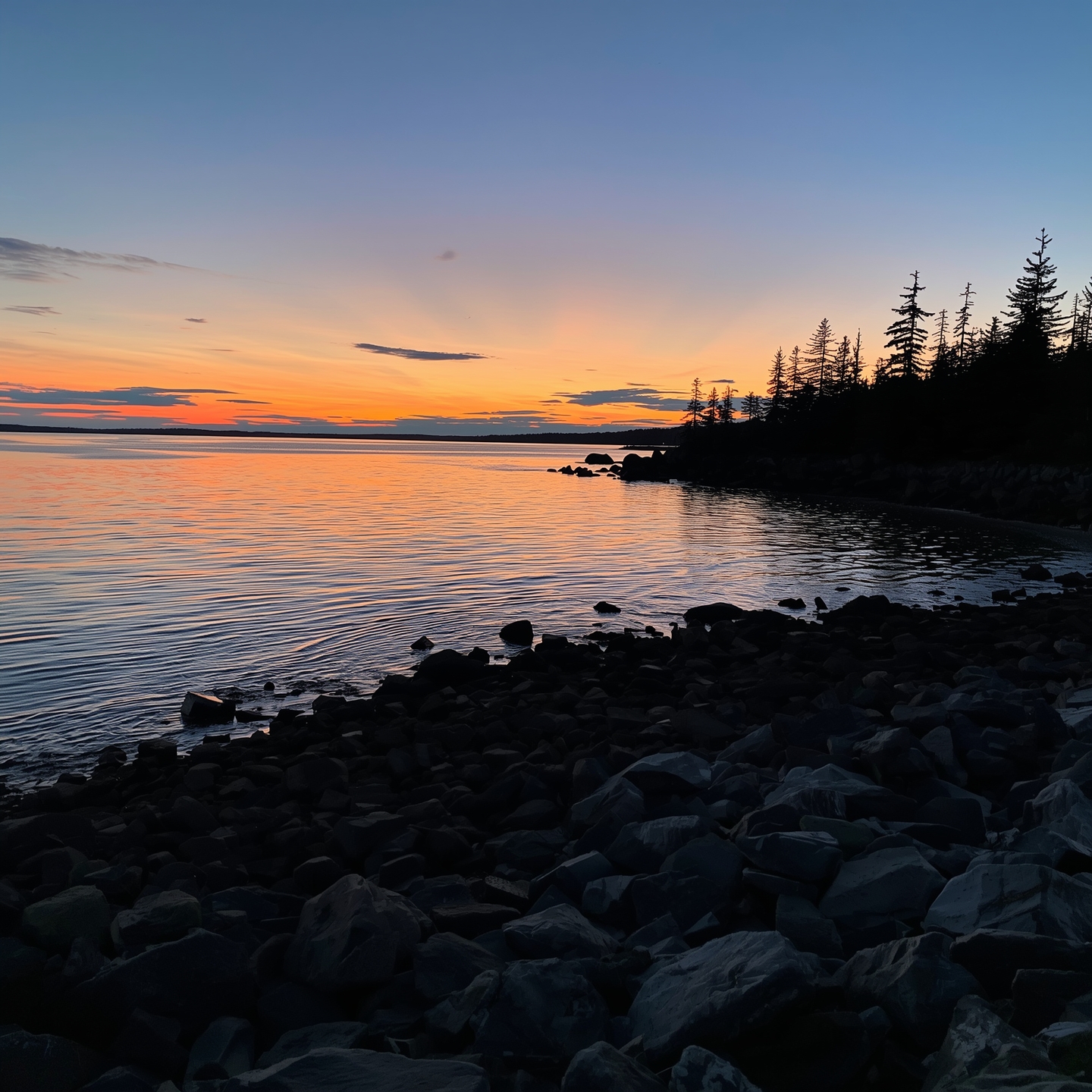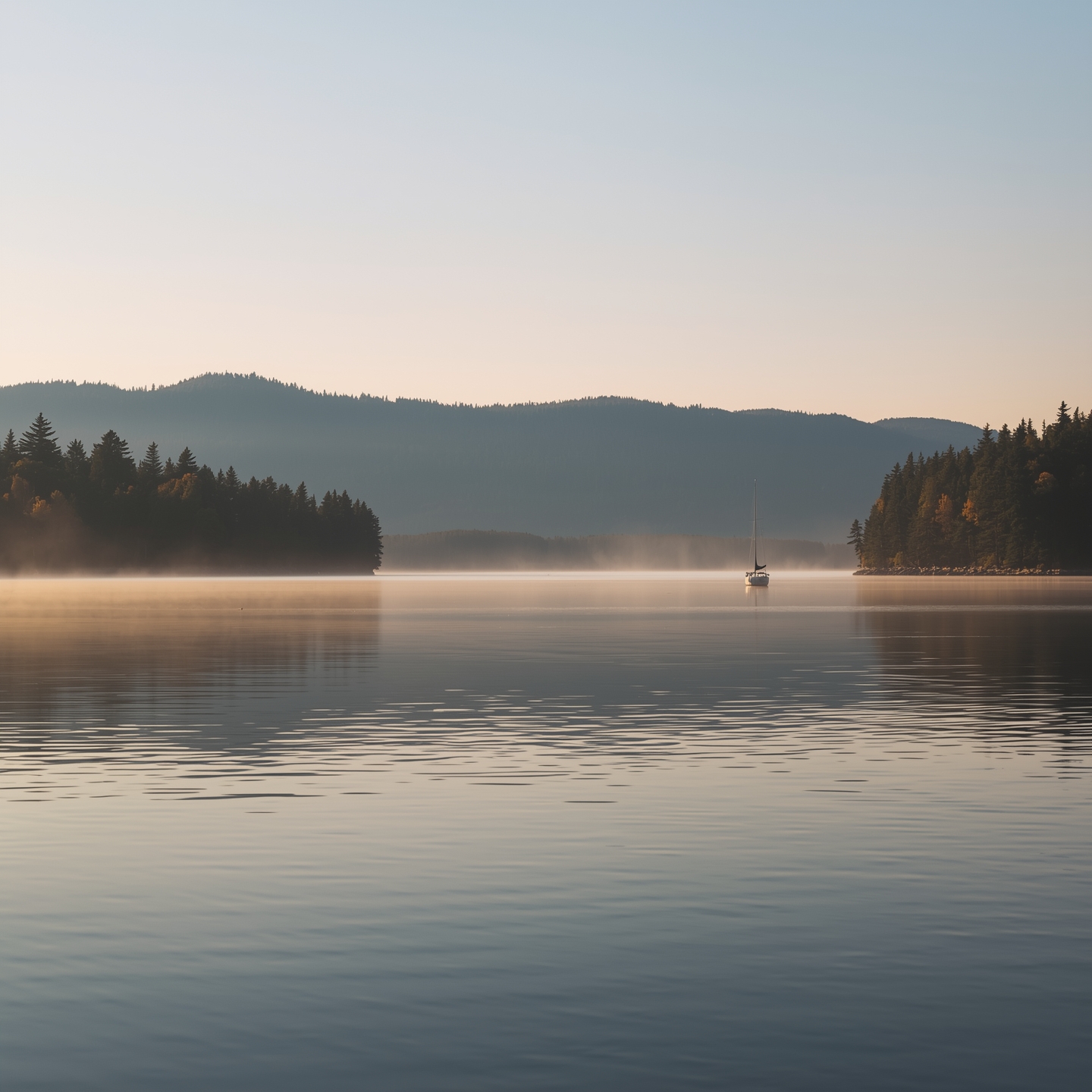Duck Harbor Campground Acadia National Park
Plan Your Stay at Duck Harbor Campground
Remote, rustic, and unforgettable — Duck Harbor Campground in Acadia National Park offers one of the most unique camping experiences in all of Maine. Tucked away on Isle au Haut, this secluded retreat features just five primitive sites, each designed for those who want to trade modern conveniences for an authentic connection with nature. The only way to reach Duck Harbor is by mailboat from the small fishing town of Stonington, adding an element of adventure before you even set foot on the island.
Once there, campers discover a world far removed from Acadia’s busier hubs on Mount Desert Island. There are no showers, electrical hookups, or camp stores — only the essentials: a tent platform, a picnic table, and a fire ring. Instead of the hum of RV generators, you’ll hear the waves rolling against the granite shoreline, the rustle of spruce trees, and the calls of seabirds wheeling overhead. Nights at Duck Harbor bring dazzling displays of stars unobstructed by light pollution, making it a perfect spot for stargazing.
For those seeking solitude, a chance to slow down, and the rare opportunity to experience Acadia in its rawest form, Duck Harbor delivers an unforgettable blend of wilderness, peace, and rugged coastal beauty.
• Located on Isle au Haut, Acadia’s most remote destination.
• Only five primitive campsites, creating an exclusive wilderness feel.
• Accessible by seasonal mailboat ferry from Stonington, Maine.
• Short walk from Duck Harbor Landing to campsites and trailheads.
• Surrounded by rugged coastline, forest trails, and stunning ocean views.
• Perfect for solitude, stargazing, and back-to-nature camping.
Location & Setting
Duck Harbor Campground is tucked away on the southwestern edge of Isle au Haut, the most remote section of Acadia National Park. Unlike the busy campgrounds on Mount Desert Island, Duck Harbor feels like a true backcountry escape. To get here, campers take the seasonal mailboat ferry from Stonington, Maine, which makes two stops on Isle au Haut: Town Landing (in the small village) and Duck Harbor Landing, a rustic dock surrounded by forest. It’s at this quiet landing where your wilderness adventure begins.
From the dock, it’s just a short walk — less than half a mile — through spruce and fir forest to the five primitive campsites. The path winds past mossy rocks, shaded clearings, and glimpses of the harbor through the trees. Each site is tucked into the woods, offering privacy while still being close enough to hear the ocean’s steady rhythm.
The setting is both dramatic and peaceful. On one side, the rocky Maine coastline stretches out with tidepools, crashing waves, and seabirds wheeling overhead. On the other, the forest interior rises toward Duck Harbor Mountain and the island’s network of trails. It’s this combination — sea, sky, and forest — that makes Duck Harbor so unique. Campers often describe it as stepping back in time, where modern noise fades away and the island feels untouched, timeless, and wild.
Staying here means embracing simplicity: no roads, no vehicles, and no services other than what you bring with you. Yet that very remoteness is what makes Duck Harbor so special. It offers the rare opportunity to camp in an authentic, off-the-grid corner of Acadia, the way the park’s earliest visitors might have experienced it over a century ago.
• Tucked on the southwestern edge of Isle au Haut — Acadia’s most remote area.
• Access via seasonal mailboat ferry from Stonington, Maine.
• Campers disembark at Duck Harbor Landing, not Town Landing.
• Less than half a mile walk from the dock to the five primitive sites.
• Surrounded by spruce–fir forest, rocky shoreline, tidepools, and seabirds.
• Remote and timeless atmosphere — no roads, no vehicles, no distractions.
Campsite & Facilities
With only five primitive campsites, Duck Harbor Campground is the smallest and most exclusive campground in Acadia National Park. Each site is nestled in the spruce and fir forest, offering a private, shaded space where you can pitch a tent and settle into the quiet rhythms of island life. Basic amenities include a picnic table and fire ring at every site, giving campers a place to cook, gather, and enjoy evenings under the stars.
Facilities here are intentionally minimal:
- A composting toilet serves the campground.
- A hand pump provides potable water, though campers often bring backup supplies.
- There are no showers, hookups, or electricity — making this a true back-to-nature experience.
- Campers must carry in all supplies and pack out all trash, as there are no services on this part of Isle au Haut.
This simplicity is the essence of Duck Harbor’s charm. With no cars, no crowds, and no distractions, visitors can focus entirely on the natural setting — the forest, the harbor, and the dramatic Maine coastline. It’s an experience designed for those who want to trade modern conveniences for wilderness solitude.
Because of the campground’s tiny size, it fills quickly during the season. But for those lucky enough to reserve a spot, Duck Harbor offers something truly unique: a wilderness stay in Acadia that feels remote, timeless, and untouched.
• Only 5 primitive sites — Acadia’s smallest and most exclusive campground.
• Each site has a picnic table and fire ring for simple camp cooking and gathering.
• Composting toilet and hand pump for potable water nearby.
• No showers, hookups, or electricity — bring backup supplies.
• Carry in all food and gear; pack out all trash (no services on Isle au Haut).
• Remote and peaceful — focus on forest, ocean, and starlit skies.
Atmosphere & Experience
The experience at Duck Harbor Campground is unlike anywhere else in Acadia. From the moment you step off the mailboat at Duck Harbor Landing, the outside world feels far away. Evenings are marked by the rhythm of the sea echoing through the cove, the crackle of small campfires, and the haunting calls of loons drifting across the water. Nights are some of the darkest in the park, with almost no artificial light, making stargazing a spectacular highlight. Many campers spend hours lying back on the rocks or gazing from their tents at skies ablaze with constellations, shooting stars, and the glowing arc of the Milky Way.
Because there are only five campsites on the entire island, Duck Harbor offers a level of privacy and seclusion that is unmatched. Reviews of Duck Harbor Campground Acadia Maine consistently praise the sense of isolation and calm. It’s common to go hours without seeing another person, and the quiet is broken only by seabirds, rustling trees, or the distant crash of waves.
Visitors often describe their stay as both peaceful and awe-inspiring. The combination of dense spruce forest, rugged granite shoreline, and the expanse of the Atlantic Ocean creates an atmosphere that feels raw and untamed. This is not just camping — it’s a chance to step into a slower rhythm of life, where time is measured by tides and sunsets rather than schedules and noise.
For many campers, Duck Harbor becomes the most memorable part of their Acadia trip, not because of what it has, but because of what it doesn’t: no roads, no crowds, and no distractions. It’s a place where the forest, ocean, and sky come together to create an experience that feels timeless.
• Evenings filled with ocean waves, campfires, and loon calls.
• Some of the darkest skies in Acadia — incredible stargazing.
• Only five campsites create unmatched privacy and seclusion.
• Reviews praise the sense of calm and isolation on Isle au Haut.
• A true back-to-nature experience with forest, ocean, and sky all around.
Things to Do Nearby
- Duck Harbor Mountain Trail
The Duck Harbor Mountain Trail is the signature hike from the campground. Though short, it’s steep in places and rewards every step with panoramic views of Duck Harbor, Isle au Haut’s rugged hills, and the sparkling Atlantic stretching to the horizon. On clear days, you can see for miles, while in foggy weather the mountain feels mysterious and hushed. Many campers consider this trail a must-do, both for the scenery and for the sense of accomplishment when reaching the summit.
- Western Head & Deep Cove Trails
The Western Head and Deep Cove Trails hug the coastline, where the ocean constantly reshapes the mood of the island. Some days, you’ll watch waves explode against granite cliffs, sending spray high into the air. Other times, the cove is calm, with tidepools glistening in the sun and seabirds gliding silently overhead. These trails capture the raw power of Maine’s coast and are perfect for those who want to experience Isle au Haut’s most dramatic shoreline.
- Long Pond & Bowditch Mountain
Inland, the Long Pond and Bowditch Mountain trails lead you into a quieter world. Here the forest is dense with spruce and fir, the ground softened by moss and pine needles. Long Pond reflects the trees like a mirror, offering a peaceful place to rest, picnic, or simply breathe in the stillness. The climb to Bowditch Mountain is gentler than Duck Harbor Mountain but still provides rewarding views of the surrounding forest canopy and coastline beyond.
- Tidepooling Around the Harbor
The rocky shoreline near Duck Harbor Landing is a treasure trove at low tide. Small pools brim with marine life — starfish, crabs, periwinkles, barnacles, and sea anemones. Children and adults alike love peering into these natural aquariums, discovering the secret world of creatures that thrive between tides. Tidepooling is an easy activity close to the campground, and it highlights the diversity of Acadia’s coastal ecosystem.
• Duck Harbor Mountain Trail — short, steep, with panoramic coastal views.
• Western Head & Deep Cove — dramatic ocean scenery and crashing waves.
• Long Pond & Bowditch Mountain — forested trails with pond reflections and inland overlooks.
• Tidepooling — explore the rocky shore near Duck Harbor Landing for crabs, starfish, and more.
Duck Harbor Campground Map
Because Duck Harbor is both remote and primitive, a campground map is essential for anyone planning a stay. Unlike the campgrounds on Mount Desert Island, there are no signs pointing to convenience stores or facilities nearby — what you bring is what you have. A Duck Harbor Campground map helps you prepare before you even board the ferry.
The map highlights:
- The ferry route from Stonington, Maine, to Duck Harbor Landing.
- The short wooded walk from the dock to the five primitive campsites.
- Key facilities, including the hand pump for drinking water and the composting toilet.
- The trail network that branches out toward Duck Harbor Mountain, Deep Cove, Long Pond, and Bowditch Mountain.
Because cell service is unreliable on Isle au Haut, it’s smart to download or print a copy of the Duck Harbor Campground map before you arrive. Campers often pick up one through the National Park Service or at the ferry dock in Stonington. Having a physical copy on hand makes navigation simple and helps you plan hikes around the island without worry.
• Ferry route runs from Stonington, Maine → Duck Harbor Landing.
• Less than half a mile walk from landing to campsites.
• Map shows 5 primitive sites, composting toilet, and water pump.
• Trails connect to Duck Harbor Mountain, Deep Cove, Long Pond, and Bowditch Mountain.
• Cell service is unreliable — download or print map before arriving.
Reservations & Practical Info
- Season: Duck Harbor Campground is open from late May through early October, matching the schedule of the mailboat ferry. Outside these months, the landing is not serviced, and the campground is closed.
Planning ahead is essential when staying at Duck Harbor Campground, as its small size and remote setting mean space is very limited. With just five primitive sites, reservations fill up quickly — often as soon as they open for the season. Here’s what you need to know:
- Booking: All reservations must be made through Recreation.gov. Walk-ins are not accepted, and the limited number of sites means it’s wise to book as far in advance as possible.
- Access: Campers arrive by the seasonal mailboat ferry from Stonington, Maine. Be sure to select Duck Harbor Landing as your stop (not Town Landing in the village). From the dock, it’s a short walk to the campground.
- Stay Limits: To ensure fair access, campers may stay a maximum of three consecutive nights.
- Firewood: Firewood must be purchased locally and transported to the island. Gathering wood from the forest is prohibited, as it harms the delicate ecosystem.
- Supplies: Campers must bring all food, gear, and essentials, including first aid. There are no stores, restaurants, or services on this part of Isle au Haut.
- Quiet Hours: Rangers enforce quiet hours to protect the campground’s peaceful character. With so few sites, even small noises carry — so campers are encouraged to embrace the quiet, natural atmosphere.
These rules help preserve the wilderness feel that makes Duck Harbor so special. By coming prepared, you’ll be able to fully enjoy the seclusion, beauty, and simplicity of this remote Acadia camping experience.
• Season: Late May – Early October.
• Booking: Required via Recreation.gov (no walk-ins).
• Access: Mailboat ferry from Stonington → Duck Harbor Landing.
• Stay limit: 3 nights max.
• Firewood must be purchased locally (no gathering).
• Bring all food, gear, and first aid — no stores on Isle au Haut.
• Quiet hours keep the campground peaceful and secluded.
Other Campgrounds in Acadia
Because Duck Harbor Campground is so small and remote, reservations can be difficult to secure. Thankfully, Acadia National Park offers three other official campgrounds, each with its own atmosphere, location, and advantages. Choosing one of these alternatives depends on whether you value convenience, coastal views, or a quieter base away from the crowds.
- Blackwoods Campground — Located on Mount Desert Island, this is Acadia’s most popular campground. Its proximity to Bar Harbor, Cadillac Mountain, and the Park Loop Road makes it the top choice for visitors who want easy access to the park’s best-known attractions. Sites are wooded and shaded, and the location is unbeatable for sunrise trips to Cadillac. However, it’s also the busiest campground, so expect neighbors close by.
- Seawall Campground — Found near Southwest Harbor, Seawall offers a more relaxed oceanside atmosphere. You’ll hear the surf rolling in, smell the salty air, and be just minutes from local lobster pounds and working harbors. It’s less crowded than Blackwoods but still close enough to enjoy the island’s hiking trails and scenic drives. Many campers call Seawall a “hidden gem” for those who want the ocean without the bustle of Bar Harbor.
- Schoodic Woods Campground — Situated on the Schoodic Peninsula, across Frenchman Bay from Mount Desert Island, Schoodic Woods is the park’s newest campground and offers the most modern facilities. Sites are spacious, hookups are available for RVs, and the surrounding peninsula is known for its quiet beauty and stunning ocean viewpoints. With bike paths, dramatic granite headlands, and far fewer visitors, Schoodic Woods is perfect for campers seeking a balance of comfort and solitude.
Together, these campgrounds give visitors the flexibility to tailor their Acadia adventure. Whether you want convenience (Blackwoods), oceanside camping (Seawall), or modern seclusion (Schoodic Woods), each option showcases a different side of the park while still delivering the natural beauty that makes Acadia unforgettable.
• Duck Harbor — remote, primitive, and limited to 5 sites on Isle au Haut.
• Blackwoods — busiest, closest to Bar Harbor and Cadillac Mountain.
• Seawall — oceanside camping near Southwest Harbor with salty breezes.
• Schoodic Woods — modern and spacious, located on the quiet Schoodic Peninsula.
Each campground offers a different experience — from convenience to wilderness — so choose the one that best fits your Acadia adventure.
Wrap-Up
For campers who dream of solitude and wilderness, Duck Harbor Campground delivers an experience unlike any other in Acadia. With only five primitive sites on remote Isle au Haut, it feels worlds away from the busier parts of Mount Desert Island. There are no showers, hookups, or conveniences here — just the essentials of camping and the raw beauty of Maine’s coast.
Evenings bring the crackle of campfires and the sound of surf echoing through the cove. Nights reveal some of the darkest skies in Acadia, where stargazing becomes unforgettable. By day, nearby trails lead to rugged headlands, quiet ponds, and sweeping mountain views, all without the crowds that define other parts of the park.
For those willing to trade comfort for authentic wilderness, Duck Harbor rewards with peace, quiet, and a connection to Acadia’s wildest side. It’s remote, primitive, and unforgettable — the kind of place where you don’t just camp, you immerse yourself in nature.
Back to Acadia Camping
Explore other Acadia campgrounds:
Blackwoods | Seawall | Schoodic Woods
National Park Service — Duck Harbor Campground Info
Recreation.gov — Duck Harbor Reservations
Visit Maine — Travel Inspiration
Love Acadia’s hidden gems like Duck Harbor? Join our free newsletter for insider tips, planning guides, and park updates straight to your inbox.
Sign Up
